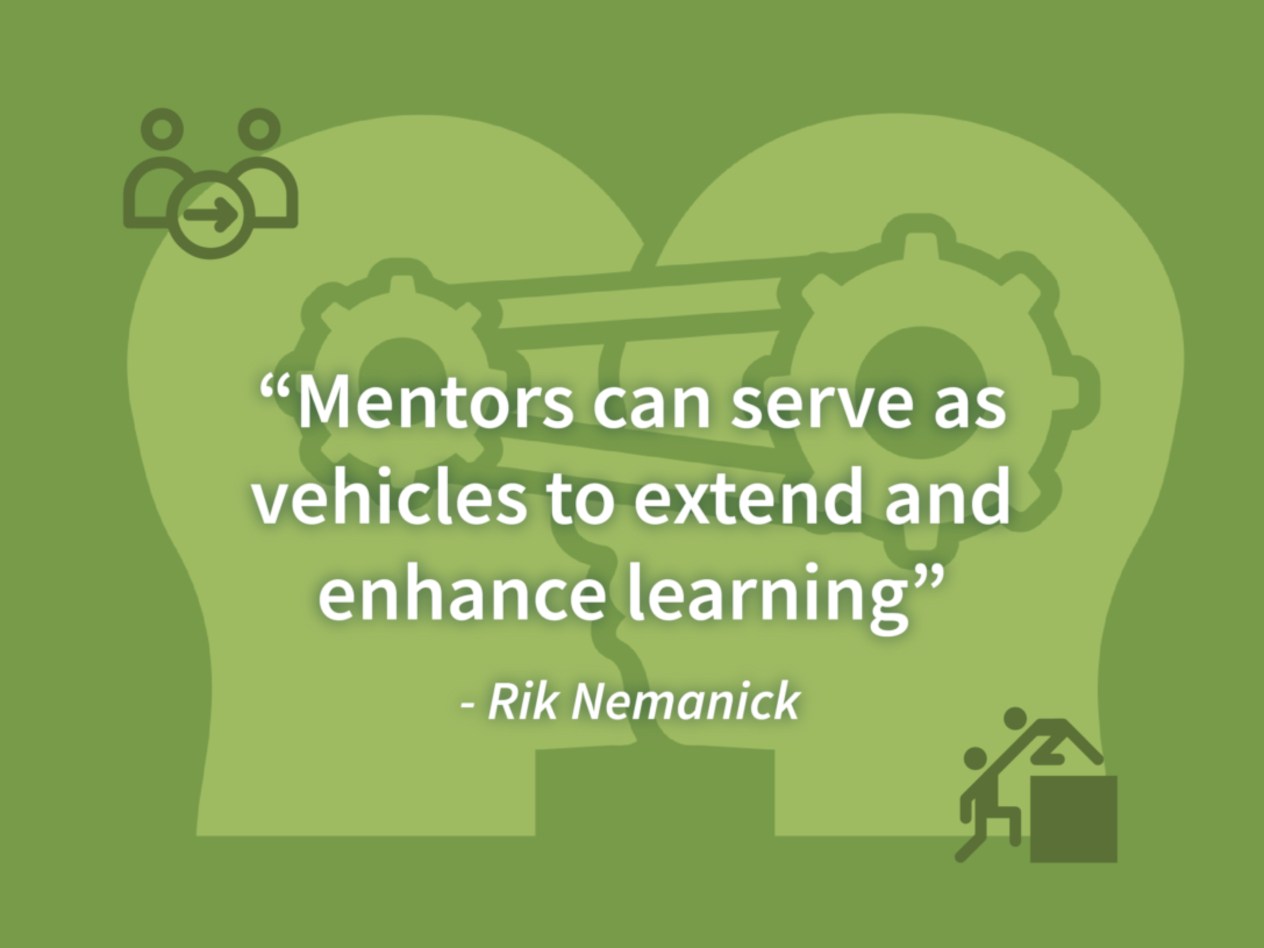Defining the mentor’s role: Part 1 in a series
- August 31, 2018
- By Guest Author
- 3 minute read

Rik Nemanick, a Washington University adjunct instructor, wrote this for the Olin Blog. He is the author of The Mentor’s Way: Eight Rules for Bringing Out the Best in Others and is leading an upcoming daylong workshop on mentoring and leader development at Olin. This is the first in a series of Olin Blog posts on mentoring.

One of my graduate advisors once told me, “Your diploma does not mark the end of your learning. It is a license for a lifetime of learning.” When students transition from the classroom back to their worlds, they are faced with numerous opportunities to learn, but often lose the forum of reflection and context the university setting provides.
Mentors can serve as vehicles to extend and enhance learning, which led me to write The Mentor’s Way, to help mentors facilitate learning.
This blog post is the first in a series of three that explores the concept of mentoring at Washington University. I interviewed a half dozen alumni from the School of Engineering and Olin Business School who have served as mentors for students in those schools. I wanted to understand how they viewed mentoring overall, the role mentors played in their own careers, and how they viewed themselves as mentors.
To begin, it can help to define the role of a mentor. It can be difficult to come down to one definition, as mentors play multiple roles for us. Some give us advice, while others ask us questions. Some teach about the big picture and others help us solve tactical problems. There were qualities that many mentors have in common.
Haroon Taqi, BSCS 1990, MSCS 1995, said it is “the role of a mentor is to support and encourage someone less-experienced in the development of professional skills and knowledge.” Mike Ferman, BSBA ’68, defined a mentor as “a trusted counselor or guide that supports the growth and development of the mentee.”
Finally, Scarlett Lee Foster, EMBA ’00, summed up a mentor as “someone who can provide advice and prepare you for the road ahead.”
From these definitions emerge common themes that include a trusted, experienced guide who supports and encourages the growth and development of a protégé to prepare for the road ahead.
One of the ways mentors support growth is by creating the time and space to learn and reflect. In describing his approach to mentoring, Taqui shared that “when giving them direction, rather than tell them what to do, I ask questions and engage them into a discussion so they learn how to deal with new situations, challenges, and opportunities.” In this mode, mentoring is a natural extension of the lifelong learning process.
One area that often surprises new mentors is the importance of the relationship itself. As you will see in the next blog post, the level of trust that exists between a mentor and protégé often determines how much a protégé will learn.
The relationship quality was noted by two of the alumni, when Mark Pydynowski, BSBA 2004, said mentors take “a genuine interest in helping someone else,” and Sally Roth, EMBA 1995, said that the best mentors “care about their mentees.”
Media inquiries
For assistance with media inquiries and to find faculty experts, please contact Washington University Marketing & Communications.
Monday–Friday, 8:30 to 5 p.m.
Sara Savat
Senior News Director, Business and Social Sciences
